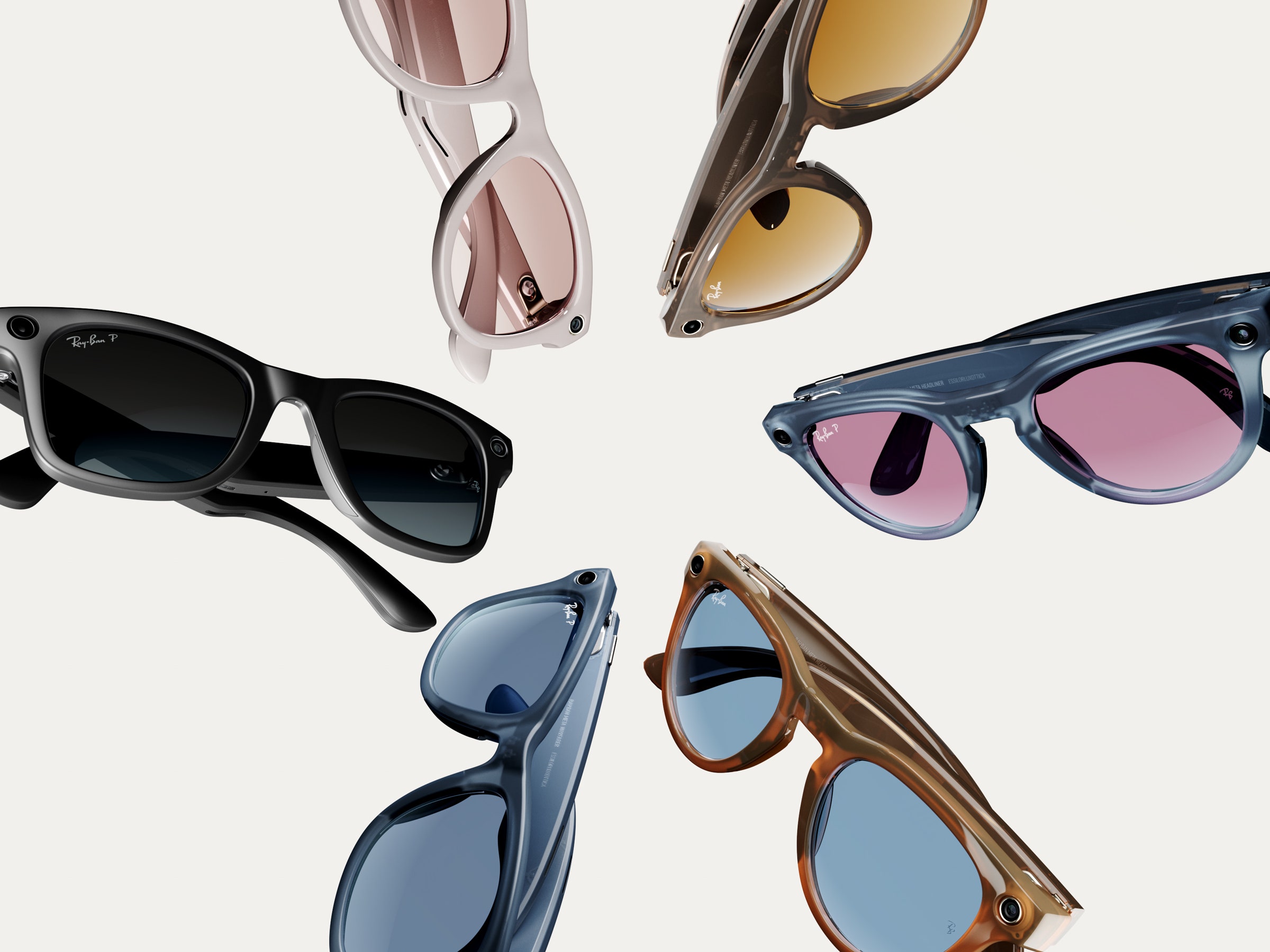Meta’s newest smart glasses, developed in partnership with Ray-Ban, have been newly fleshed out with more AI features. This week, Meta started rolling out an over-the-air update to its second generation of smart sunglasses that gives the wearables some new capabilities.
The biggest update is the Meta AI with Vision feature, which incorporates Meta’s ChatGPT-enabled AI assistant into the spectacles. Owners of the smart glasses will be able to activate an AI voice assistant, fiddle with (nearly) real-time translation, and identify stuff in the wearer’s vision. It all sounds very futuristic for sunglasses, though users have reported that, like all these newfangled AI systems, some features work better than others.
Other new features in the update include video calling in WhatsApp or Facebook Messenger apps and the ability to share the wearer’s view, shot from the glasses’ two front-facing cameras. The glasses also come in two new frame styles: the lower bridge Headliners and the cat-eye Skylers.
Walking around with a pair of cameras strapped to your face might still feel a little dystopian, but the fact that they look like regular old Ray-Bans makes the Meta shades blend into daily life more than the smart glasses of old like Google Glass. So yes, it certainly gets points for style, much like Mark Zuckerberg and his new chain obsession these days. But it’s also worth taking a moment to remember that these sick shades are coproduced by a company that has a history of letting its users’ data fall into the wrong hands. You’ll look dope in them, sure, but you'll also be giving Meta first dibs on all the new parts of your life you’re capturing.
Here’s some other consumer technology news from this week.
Bag Your Recycling
Freitag, the Swiss company known for making upcycled bags and backpacks, has a slick new black sack. The Mono[PA6] Backpack can hold up to 24 liters of stuff and comes with a smaller detachable musette that can be worn like a sling or purse. The company says every bit of the bag is made from a single nylon material (polyamide 6). Everything from the flaps, straps, and zippers are cobbled together from that single base compound. That means you can send it back to Freitag, where the company can fully break it down and recycle the material to make another bag. The new piece retails for $380.
Freitag has a history of environmentally ambitious, boldly designed bags. In addition to its iconic upcycled truck-tarp designs, it has made bags out of recycled plastic yarn and roller bags that pack down tiny and inflate with a bicycle pump.
Pixel 8A Deets Leaked
Fresh new leaks have emerged about Google’s upcoming Pixel 8A budget smartphone. The leaks came courtesy of the tech sites MySmartPrice and Android Headlines, in what appears to be a set of official (yet not officially released) Pixel promo images and a video. The materials show a variety of AI-powered updates to Google's mobile platform, like live translation, the addition of Circle to Search, support for Audio Magic Eraser, and better photo editing abilities. Android Headlines' leak also indicates that the Pixel 8A may get up to seven years of security support after launch.
Details about Google's devices have a tendency to leak out well before the event meant to reveal them. In this case, Google's new Pixel phone is expected to be unveiled at its upcoming I/O event on May 14.
We All Stand for Something
What do ARPA, TCP/IP, and LLMs all have in common? That’s right, they’re all very important parts of how much of our technology works these days. They’re also obtuse nouns that can be very confusing when jammed together with all the other tech acronyms that have flooded our collective lexicon.
This week on the Gadget Lab podcast, we pull apart a smörgåsbord of acronyms from throughout the tech era and examine the weird and important ways they have influenced the modern world. And, to heighten the stakes a bit, we’ve also made it a competition.

